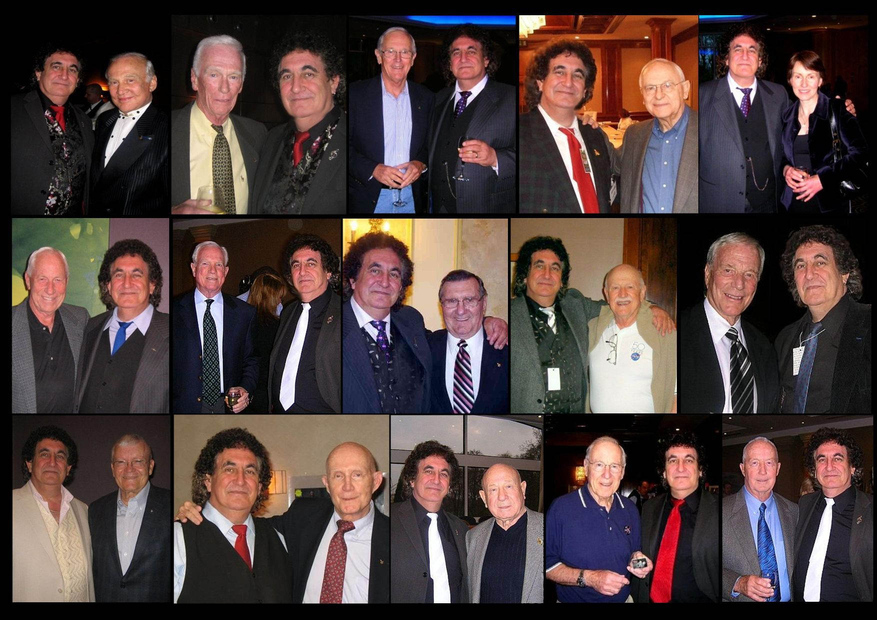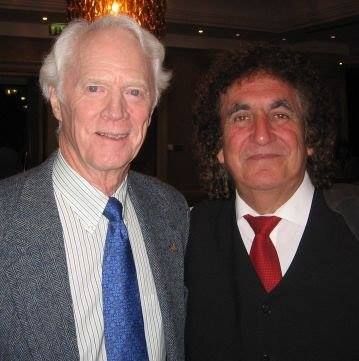Astronauts and the UFO phenomenon.
Even after more than 60
years of investigation and debate, the fundamental question remains unresolved:
what exactly are UFOs? Each of the many theories seems to explain one
or more aspects of the phenomenon. Setting aside deliberate hoaxing, these,
and the main points they address, can be summarised as follows:
* Natural or meteorological: explains the
absence of widely-acceptable physical evidence
*Inter-dimensional travel / time travel / worm-holes:
all take into account the vast size of interstellar space and the velocity
limits imposed by the General Theory of Relativity
*Advanced human
technology: the secrecy
maintained by many governments and their apparent lack of interest in
researching UFOs is understandable if they are their operators!
* Hallucination & psychological pathology:
all of the above points, together with the abduction phenomenon and very
close encounters, are explicable if we assume that the events occurred
in the witnesses own minds.
There is also, of course, the explanation that was widely accepted at
the start of the 'Flying Saucer' era: that UFOs are spacecraft operated
by extra-terrestrial biological entities (EBEs) To many people - particularly
those who grew up during the heady years of the 'Space Age' between 1957
and 1972 - this seems by far the most logical and credible explanation:
we were making our first stumbling steps into Space: surely the ultimate
expression of this 'outward urge' would be to visit other star-systems
and contact other intelligent life forms. If our species, then why not
others?
But, ironically, it is the exploration of near- Earth space that has caused
many people to doubt the extra-terrestrial hypothesis: " If UFOs are spacecraft
operated by alien astronauts, (the argument runs) then why don't our astronauts
encounter them in Space? Or on the Moon?" So, in the final analysis, the
'ET Hypothesis' largely stands or falls upon this question: do US Astronauts
and Soviet Cosmonauts believe in an extra-terrestrial origin for UFOs
and have they encountered them during their missions? If the answer is
'No!' then it becomes almost impossible to support the 'alien spacecraft'
identification.
Having been born in 1951, I have watched the beginning and the sad decline
of human space exploration: from the age of six I was fascinated by rockets.
I constructed my own increasingly complex devices, culminating in a liquid-fuelled
missile when I was seventeen. Starting in 1961, I kept a diary of every
manned mission and, so determined was I to become an astronaut, that ultimately
I joined the Royal Navy as a pilot. Now, four decades later, as the owner
of a space collectibles company, I have been privileged to meet many of
my childhood heroes both professionally and socially.

The space travellers I have met, particularly those from
the United States, are very patriotic. Although occasionally critical
of the way some recent administrations have marginalised the space program,
they generally support the official NASA line when discussing UFOs and
other contentious issues in public. However, a few late-night sessions
with a pitcher of margaritas or Tanqueray martinis have revealed some
fascinating insights. The conclusion I have reached is that, during their
missions many astronauts and cosmonauts have witnessed objects that defy
immediate explanation.
Furthermore, since most of the pre-Shuttle spacemen have thousands of
hours experience as test pilots or military aviators, it is perhaps unsurprising
that a number have reported encountering UFOs in the atmosphere. Some
intriguing (non-verbatim!) quotes:
James McDivitt, Gemini IV
In 1965, McDivitt witnessed an apparently metallic cylinder
with antenna-like structures, which he attempted to photograph. When I
asked why he didn't wake his fellow crew-member, Edward White, he replied
that "...it wasn't in the mission profile. I was on watch, Ed was scheduled
for a sleep period. You have to understand the military way of things:
you do what's in the profile!" Later, however, both astronauts reported
two egg-shaped object leaving glowing trails. McDivitt told me that the
photographs of these on many websites are either fakes or merely show
reflections in Gemini IV's window: he has never seen prints of the exposures
he made, and feels it is likely they were over exposed due to the UFO's
proximity to the Sun.
Scott Carpenter, Mercury 'Aurora 7'
Asked if it was true that he had reportedly stated: "At
no time, when the astronauts were in space were they alone: there was
a constant surveillance by UFOs." Carpenter replied that he had said '...something
like that'. I asked if he was referring to the 'fire-flies' he and John
Glenn had observed during their Mercury missions: these he dismissed as
ice crystals or frozen urine. I have spent time with Carpenter on three
separate occasions and asked for clarification: other than to confirm
the quote above, he has not commented further. (Except to remark, in apparent
contradiction, that he has never personally seen a UFO!)
James Lovell, Gemini V11, Gemini XII,
Apollo 8, Apollo 13
I asked Lovell about the 'bogies' that were
reported on his Gemini VII mission. He stands by the original statement
that he and Frank Borman were not looking at the top stage of their Titan
II launch vehicle, which they could distantly see at the same time. He
also confirmed that he and Buzz Aldrin observed two 'bright unknowns'
during their Gemini XII mission. Lovell laughs at the interpretation of
his Apollo 8 communication about Santa Claus, remarking that the tongue-in-cheek
comment was, after all, made on Christmas Day!
Gene Cernan: Gemini IX, Apollo 10, Apollo 17
When asked to confirm the reported sightings of UFOs during
his three space missions, Cernan (paraphrasing his widely-published quote)
said: "Look: I've publicly said that I believe they (UFOs) are real and
that they come from someplace else: from some other technological civilization.
There is too much evidence not to (believe that)"
Richard Gordon: Gemini XI, Apollo
12
I asked Gordon about the reported encounter with a UFO
during the Gemini XI mission. He confirmed that both he and Pete Conrad
had seen a bright object, which Conrad had photographed. Gordon stated
that this had been identified by NASA as the Soviet Proton 3 satellite:
he felt this was unlikely, since the object had visible length, which
would not have been the case with a 3 metre long spacecraft 450 km away.
Dr Edgar Mitchell: Apollo 14 moonwalker
I have met Dr Mitchell a number of times and discussed
the UFO phenomenon with him in a general way: he famously grew up in Roswell,
NM. in October 2011, he amazed me by casually mentioning that he had been
briefed that US intelligence agencies are actively working with four alien
species, which he went on to describe! I asked if he would include this
information in the next day's lecture: he agreed and did so!
My conclusions:
Having broached the subject of extraterrestrial life and UFOs with a number
of Astronauts, I personally believe that they have more to say on the
subject than they feel comfortable about disclosing. Their natural reluctance
to say or do anything controversial, or that would expose the Astronaut
Corps to ridicule, prevents them from making speculative statements. This,
in my view, makes the disclosures of space travellers such as Popovich,
Mitchell, Cooper and Slayton that much more credible.
Astronauts / Cosmonauts who have confirmed a belief in the reality of
the UFO phenomenon: The internet is crowded with alleged accounts of UFO
encounters by space travellers from the US and former Soviet Union: the
great majority of these are complete fabrications. The reticence shown
by many of the Astronauts to discuss the subject is generally either because
they have nothing to discuss or because they have grown weary of being
misquoted. Occasionally, however, someone will confirm a belief in the
possibility of extraterrestrial life or even admit to having personally
witnessed a UFO. Here is a partial list:
|
Dr
Edgar Mitchell
Gordon Cooper Donald 'Deke' Slayton Charles 'Pete' Conrad Pavel Popovich Story Musgrave Eugene Cernan John Glenn Joseph Walker Robert White Buzz Aldrin Jim McDivitt |
Update!
In September 2013, I had the privelege of chatting to Apollo 9 Astronaut Rusty Schweickart and also of attending a lecture he gave the following day. To my amazement, he was very forthright about the existence of life elsewhere in the cosmos and hinted that its existence has already been accepted within the scientific / intelligence community in the USA....



